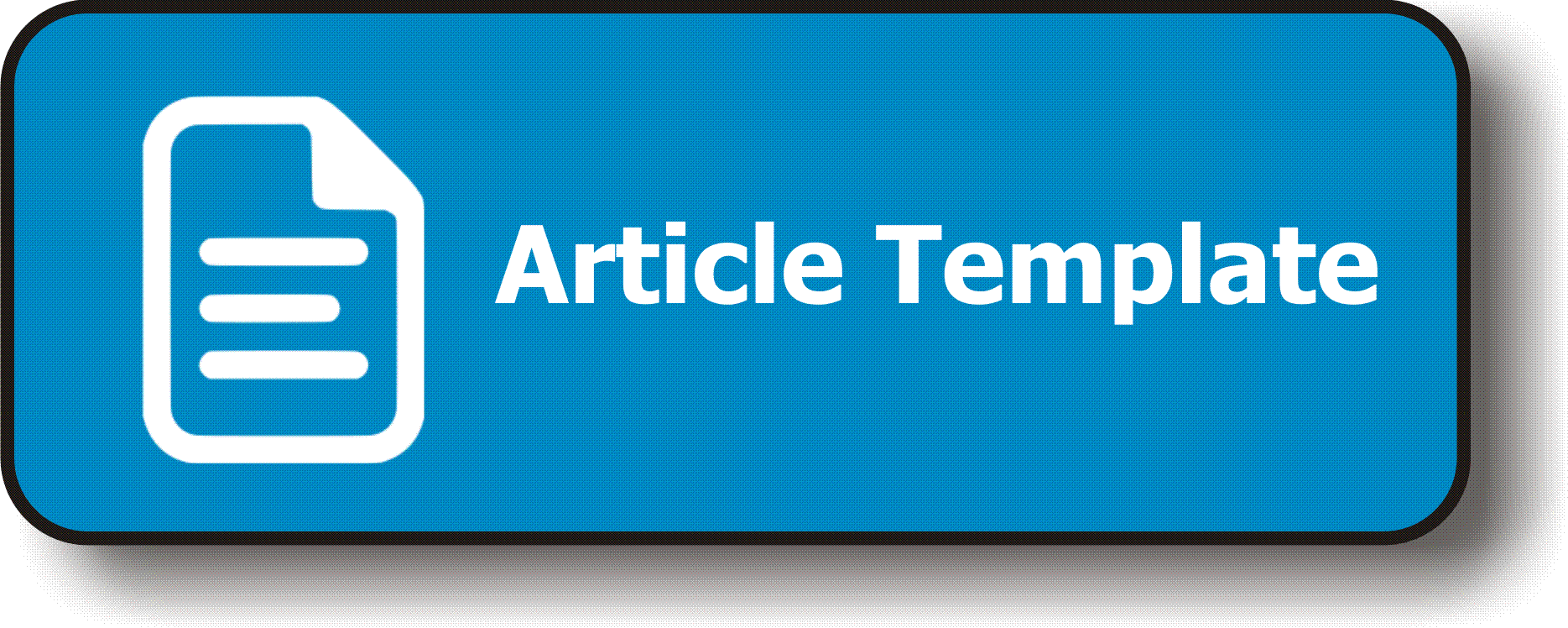Information Literacy of Tuberculosis Patients in Hospital Health Services
Abstract
In implementing health service management, the role of communication is needed, because it must determine the cause of a disease in a patient. Therefore, knowledge and communication skills must be possessed by all health workers, because they will influence patient perceptions, patient assessments of services, trust, and patient recovery rates. The research method used is a qualitative approach, data collection techniques through interview methods aim to obtain information from participants or sources through direct face-to-face dialogue between researchers and sources. The concept of information literacy standards is composed of three basic components, namely access, evaluation, and use. Patients in the millennial category browse the internet to find out more about this disease. On the internet site, the explanation is clearer and more detailed. Apart from that, health service information is also obtained in the form of banners, posters, pamphlets, or other printed media available at the health service facility. The research conducted showed that tuberculosis patients could develop information literacy about the need for information about the disease they were suffering from. This ability accesses, evaluates, and utilizes the required information. Fulfilling information needs related to their illness is available through information services available at the health center where their health facility is located or at the referral hospital where they seek treatment.
Keywords
Full Text:
PDFReferences
Arif, K. M. (2021). Strategi membangun sdm yang kompetitif, berkarakter dan unggul menghadapi era disrupsi. Tahdzib Al-Akhlaq: Jurnal Pendidikan Islam, 4(1), 1-11.
Badke, W. B. (2014). Can't get no respect: Helping faculty to understand the educational power of information literacy. In Relationships between teaching faculty and teaching librarians (pp. 63-80). Routledge.
Delima, I. (2018). Peran guru dalam penerapan literasi informasi siswa pada mata pelajaran Bahasa Indonesia di SMK SATRIA Srengseng, Jakarta Barat Tahun Pelajaran 2018/2019. [Undergraduate Thesis, UIN Syarif Hidayatullah Jakarta]. Institutional Repository UIN Syarif Hidayatullah Jakarta http://repository.uinjkt.ac.id/dspace/handle/123456789/43182
Estell, A. N. (2019). Teaching yourself to learn: a case for incorporating self-directed learning concepts into information literacy education. In Information Literacy in Everyday Life: 6th European Conference, ECIL 2018, Oulu, Finland, September 24–27, 2018, Revised Selected Papers 6 (pp. 607-618). Springer International Publishing.
Fadhli, R. (2021). Implementasi kompetensi pembelajaran sepanjang hayat melalui program literasi di perpustakaan sekolah. Jurnal Kajian Informasi & Perpustakaan, 9(1), 19-38.
Fadli, M. R. (2021). Memahami desain metode penelitian kualitatif. Humanika, 21(1), 33–54.
Fajarwati, Y. (2012). Pengaruh Kemampuan Literasi Informasi Terhadap Prestasi Belajar Siswa SMAN 1 Depok [Undergraduate Thesis, Universitas Indonesia]. Universitas Indonesia Library. https://lib.ui.ac.id/detail.jsp?id=20297394
Gazali, M. (2013). 235722-Optimalisasi-Peran-Lembaga-Pendidikan-Un-1Ad38E14. Al-Ta’dib, 6(1), 126–136.
Hakim, B., A., H. (2015). Internet dan Kapitalisme Informasi di Perpustakaan. PERSADHA: Media Informasi Perpustakaan Universitas Sanata Dharma, 13(2).
Indonesia. Undang-Undang Nomor 14 Tahun 2005 tentang Guru dan Dosen. Lembaran Negara Republik Indonesia Tahun 2005 Nomor 157. Sekretariat Negara. Jakarta.
Kemenkes RI. (2015). Materi Inti 1 Program Pengendalian Tuberkulosis. Dirjen Pengendalian Penyakit dan Penyehatan Lingkungan.Davis et. al (2008) stated that the optimal relationship between healthcare providers and patients is one of trust.
Klifto, K., Klifto, C., & Slover, J. (2017). Current concepts of shared decision making in orthopedic surgery. Current reviews in musculoskeletal medicine, 10, 253-257.
Kong, S. C. (2014). Developing information literacy and critical thinking skills through domain knowledge learning in digital classrooms: An experience of practicing flipped classroom strategy. Computers & education, 78, 160-173.
Martzoukou, K., & Sayyad Abdi, E. (2017). Towards an everyday life information literacy mind-set: a review of literature. Journal of Documentation, 73(4), 634-665.
Mashuri, I. (2014). Model Pengembangan Literasi Informasi di Perpustakaan Sekolah. Pustakaloka, 6(1), 119–132.
Mawardi, I. (2017). Transformasi Lembaga Pendidikan Tinggi: Penguatan Kualitas Luaran SDM di Era Globalisasi. Adhitakarya: Jurnal Ilmiah Penelitian, Pengkajian Dan Pengembangan, 4, 1-12.
Moleong, J. L. (2000). Metode Penelitian Kualitatif. PT Remaja Rosdakarya.
Mulyana, D. (2016). Health and Therapeutic Communication. PT Remaja Rosdakarya.
Rindyasari. (2008). Literasi Informasi Guru : Studi Kasus SMA Perguruan Islam Al-Izhar Pondok Labu.
Roganda, F. D., Salman, Nurcandrani, P.S. (2008). Pola Komunikasi Interpersonal Terapeutik Dokter terhadap Pasien Anak. Kalbisocio, 2(2), 183-193.
Rusandi, & Muhammad Rusli. (2021). Merancang Penelitian Kualitatif Dasar/Deskriptif dan Studi Kasus. Al-Ubudiyah: Jurnal Pendidikan Dan Studi Islam, 2(1), 48–60.
Sahli, I. T. (2020). Penyakit Tuberkulosis di Puskesmas Dosay Sentani Barat Kabupaten Jayapura Tahun 2017-2019. ARTERI: Jurnal Ilmu Kesehatan, 1(4), 333-339.
Salisah, N. H., (2011). Komunikasi Kesehatan: Perlunya Multidisipliner dalam Ilmu Komunikasi. Jurnal Ilmu Komunikasi, 1(2), 169-190.
Simon, J. R., Carel, H., & Bird, A. (2017). Understanding disease and illness. Theoretical Medicine and Bioethics, 38, 239-244.
Widyaningtyas, P., Candrasari, A., Jatmiko, S. W., & Lestari, N. (2020, May). Efikasi Diri Dan Tingkat Pendidikan Mempengaruhi Kepatuhan Pengobatan Pasien Tuberkulosis. In Prosiding University Research Colloquium (pp. 256-260).
Yusniah, Y. (2016). Information literacy of library science. JIPI (Jurnal Ilmu Perpustakaan dan Informasi), 1(1), 12-28.
Widiatmojo, R. (2020). Literasi Visual Sebagai Penangkal Foto Hoax Covid-19. Sospol UMM, 6(1), 114-127.
DOI: https://doi.org/10.17509/edulib.v14i1.71180
DOI (PDF): https://doi.org/10.17509/edulib.v14i1.71180.g27460
Refbacks
- There are currently no refbacks.
Copyright (c) 2024 Edulib

This work is licensed under a Creative Commons Attribution-NonCommercial-ShareAlike 4.0 International License.

This work is licensed under a Creative Commons Attribution-ShareAlike 4.0 International License.





